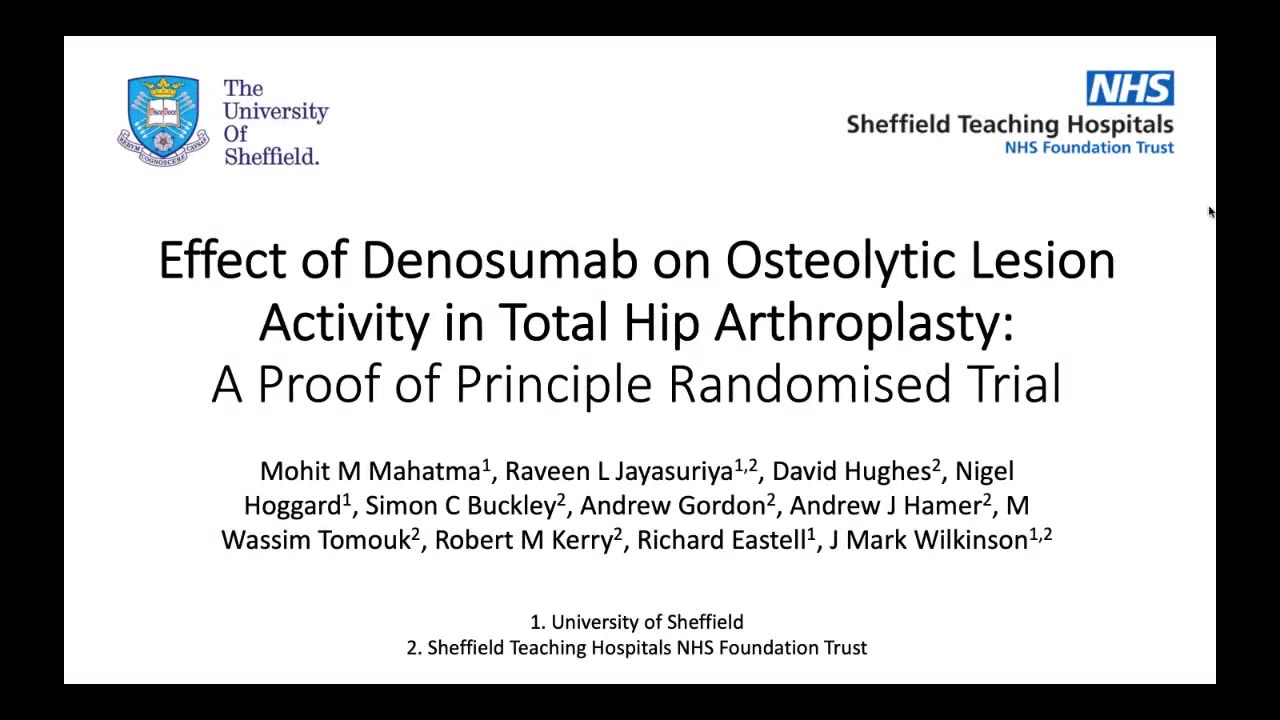Please login to view this media

- Talk
- 07/09/2020
- UK
Effect of Denosumab on Osteolytic Lesion Activity in Total Hip Arthroplasty: A Proof of Principle Randomised Trial
Description
In this presentation, Mohit Mahatma addresses the audience regarding a study focusing on denosumab's potential effects on osteolytic lesions in patients undergoing revision hip arthroplasties. Mohit begins by highlighting the prevalent issue of osteolysis caused by particle debris from prosthetic implants, which leads to bone loss through a series of immune responses and osteoclast proliferation, ultimately compromising the prosthesis. He notes the ineffectiveness of bisphosphonates in treating osteolytic lesions and suggests that denosumab, which specifically targets RANK ligand, could be a more promising treatment.
The study aims to evaluate denosumab's impact on osteolytic lesions through a randomized, double-blinded, placebo-controlled trial involving 24 patients. Findings show that denosumab significantly reduced osteoclast numbers, osteoclasts' surface, and eroded surfaces by 70-90%, while some other bone parameters were similarly affected. The analysis of bone turnover markers corroborated these findings, indicating a reduction following treatment. Mohit emphasizes the safety of denosumab, reporting no atypical fractures or major side effects in patients.
Finally, the presentation discusses plans for a definitive phase 3 trial to further test denosumab's efficacy and its administration regimen. The session concludes with a Q&A segment, where Mohit clarifies practical application concerns and dosing specifics regarding denosumab for future treatments. The overall conclusion is that denosumab shows effectiveness in managing osteolytic lesion activity and lays the groundwork for further research.